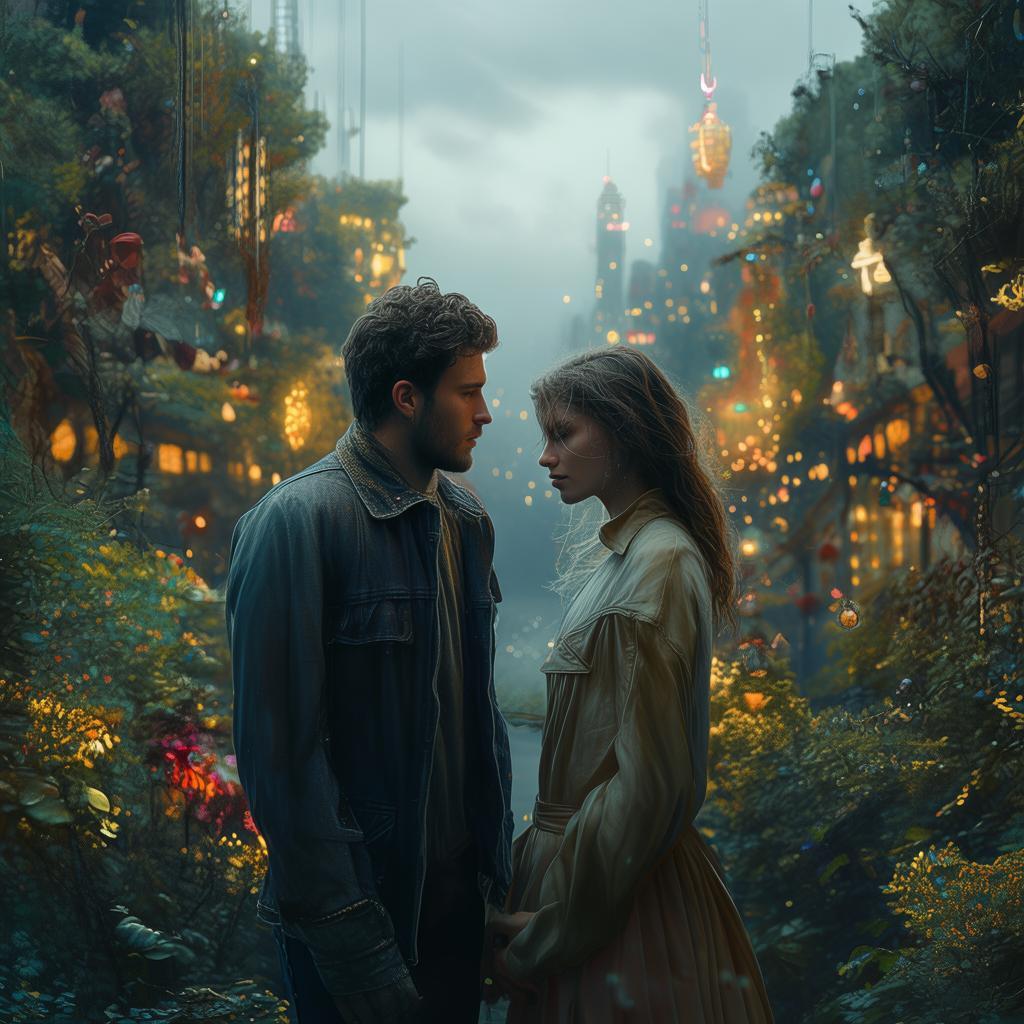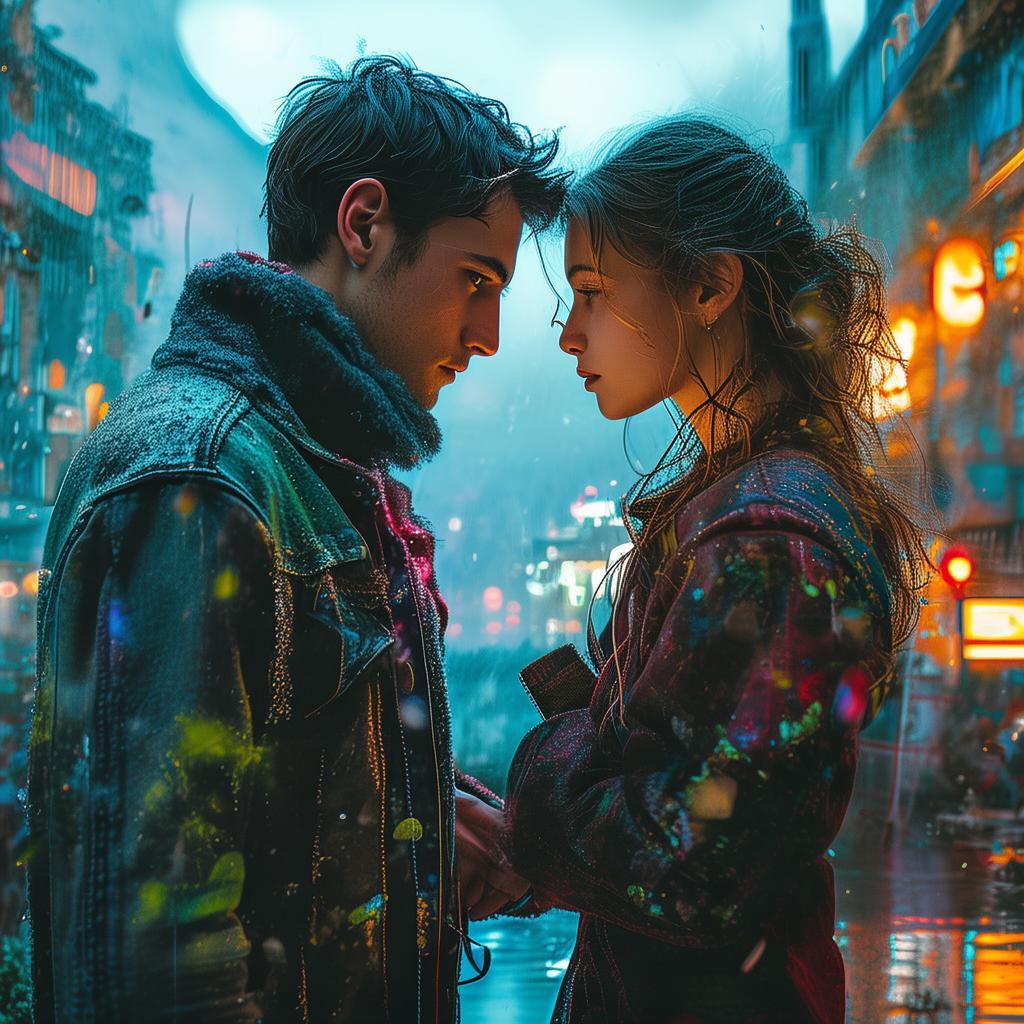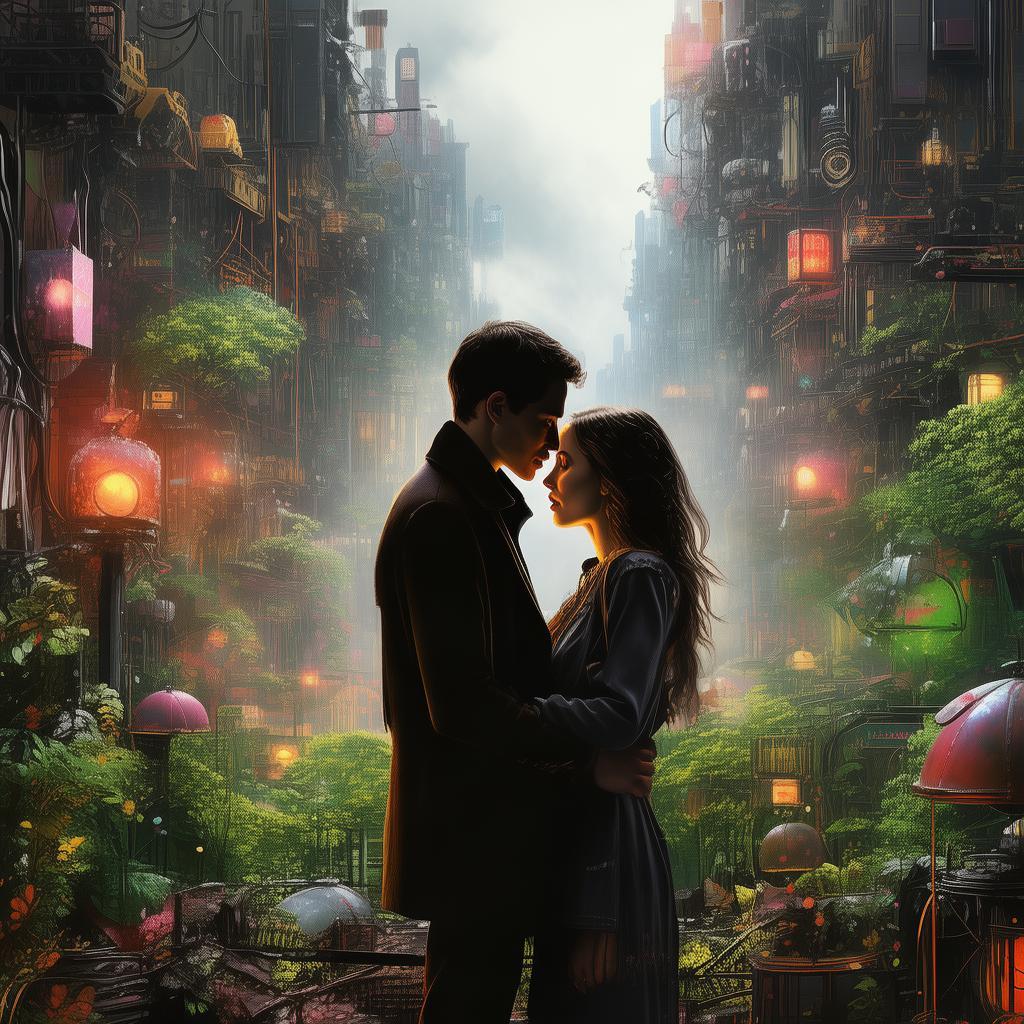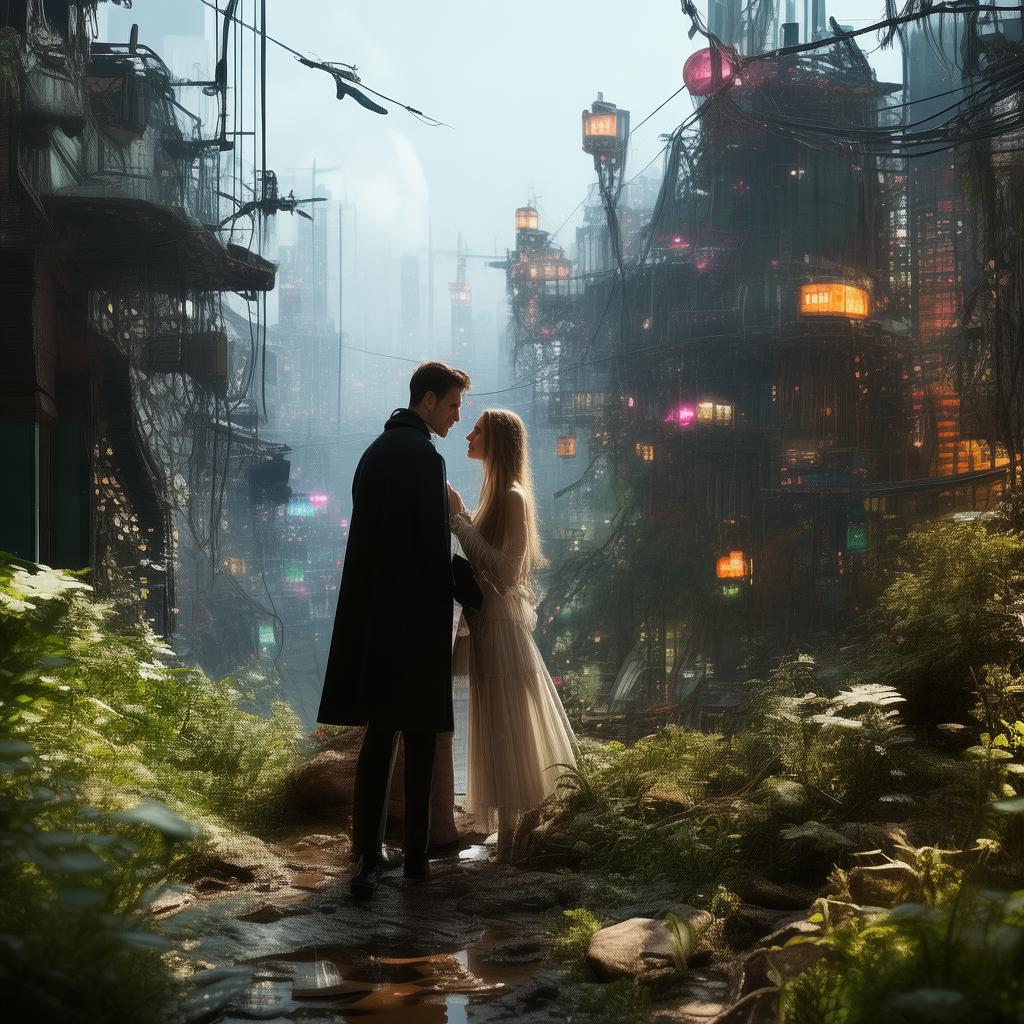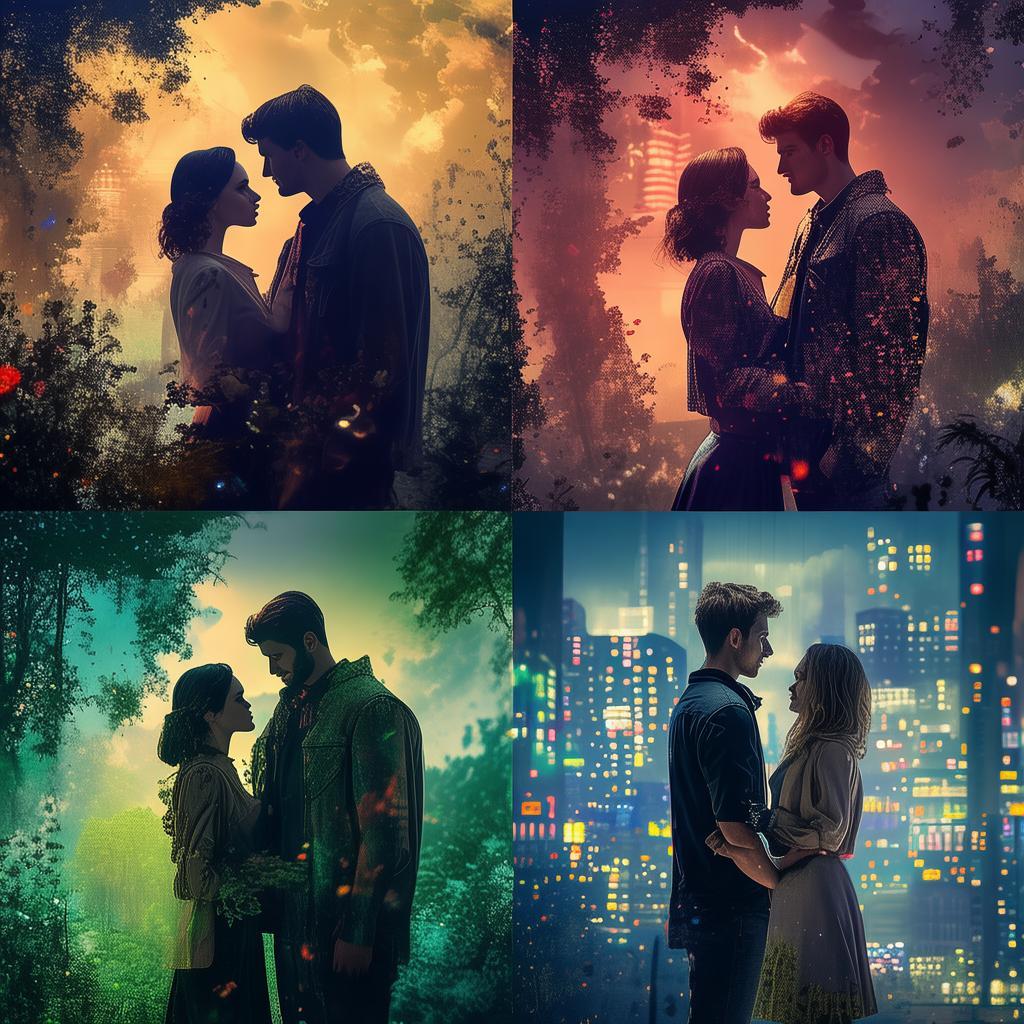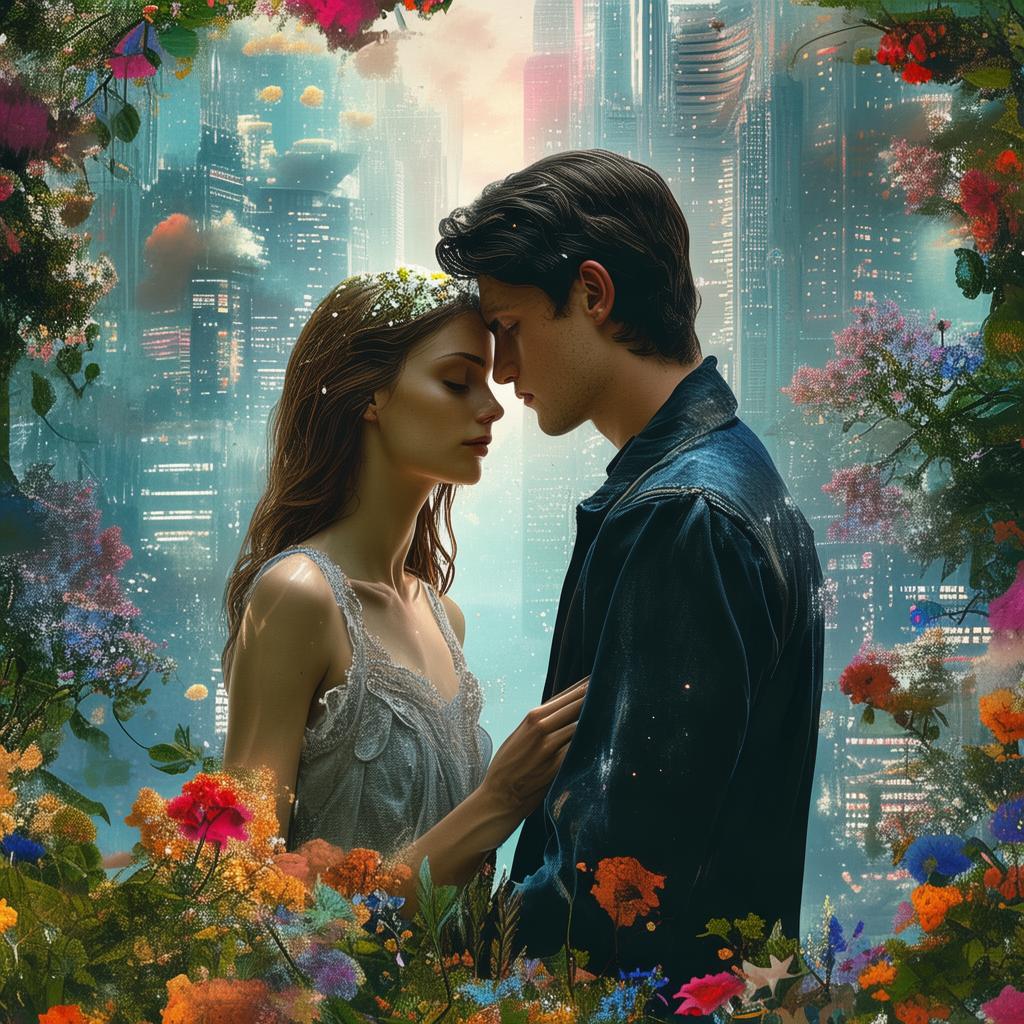The Melancholic Symphony of the Heart: A Tragic Romance
In the heart of Vienna, where the air was thick with the scent of waltz and the sound of music echoed through the cobblestone streets, there lived a young composer named Alexei. His melodies were as enchanting as they were melancholic, a testament to the turmoil within his soul. He was a man of few words, but his music spoke volumes, each note a thread in the intricate tapestry of his innermost feelings.
Alexei's latest composition, "The Melancholic Symphony of the Heart," was a tour de force of emotional expression. It was a symphony that mirrored his own heartache, a love story that had never seen the light of day. The piece was a series of tragic sonatas, each one a testament to the love he had once known, now gone, like a wisp of smoke vanishing into the wind.
The story of Alexei's love began with a girl named Elara, a dancer whose grace and beauty captivated him from the moment they met. She was the light in his life, the reason he found the strength to create, the inspiration behind his most beautiful compositions. But Elara had her own dreams, dreams that took her far from Vienna, far from Alexei.
One evening, as the stars shone down on the city, Alexei found himself at the Vienna Opera House, watching Elara perform. Her dance was a whirlwind of emotion, her movements telling a story of love and longing. In that moment, Alexei knew that his symphony must be dedicated to her, a love story that would forever be incomplete without her presence.
But fate had other plans. Elara's dreams led her to Paris, and soon after, she received a letter from Alexei, expressing his love and his hope that she would return to him. The letter ended with a single sentence that would change everything: "If you cannot come back to me, at least let me compose your farewell."
Heartbroken, Elara left Vienna, her heart heavy with the weight of Alexei's love and the knowledge that she could not return. She danced the night away in Paris, but the music in her soul was no longer the same. Alexei, in turn, poured his heart into "The Melancholic Symphony of the Heart," a piece that was as much a eulogy to their love as it was a reflection of his own pain.
Years passed, and Alexei's symphony became a legend among the Viennese. People spoke of it in hushed tones, as if the music itself could feel the weight of the sorrow it conveyed. But Alexei remained alone, his heart a hollow shell, the symphony his only companion.

One evening, as he sat in his studio, the door creaked open, and a woman stepped inside. She was young, with eyes that seemed to carry the weight of the world. Her name was Lila, a violinist who had heard of Alexei's symphony and sought him out, hoping to play it for him.
As Lila played, Alexei listened, his heart aching once more. But this time, there was something different. Lila's violin brought a new life to the symphony, a new hope that maybe, just maybe, love could find its way back into his life.
After the performance, Alexei and Lila spoke, their conversation a gentle ebb and flow of words. He told her the story of Elara, of the symphony that was his love story, and of the pain that had consumed him for so long. Lila listened, her eyes brimming with tears, understanding the depth of his loss.
In the days that followed, Alexei and Lila grew closer, their bond forged in the fire of shared sorrow. They realized that sometimes, love doesn't just find its way back, it is found in the unexpected places, in the hearts of those who have known loss and can therefore understand it.
The symphony, once a melancholic dirge, began to take on a new life. Alexei revised it, adding new movements that celebrated the beauty of love, the resilience of the human spirit, and the hope that even the most tragic of love stories could find a new beginning.
In the end, "The Melancholic Symphony of the Heart" was not just a love story, it was a testament to the enduring power of love, even in the face of tragedy. And as Alexei and Lila stood together, hand in hand, they knew that their love was a melody that had been waiting to be played, a melody that was now their own.
✨ Original Statement ✨
All articles published on this website (including but not limited to text, images, videos, and other content) are original or authorized for reposting and are protected by relevant laws. Without the explicit written permission of this website, no individual or organization may copy, modify, repost, or use the content for commercial purposes.
If you need to quote or cooperate, please contact this site for authorization. We reserve the right to pursue legal responsibility for any unauthorized use.
Hereby declared.
